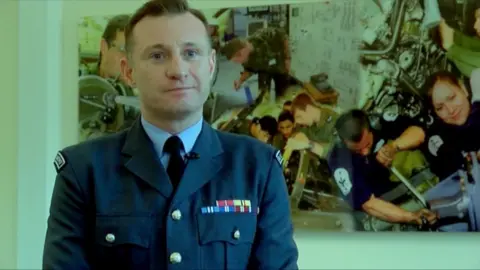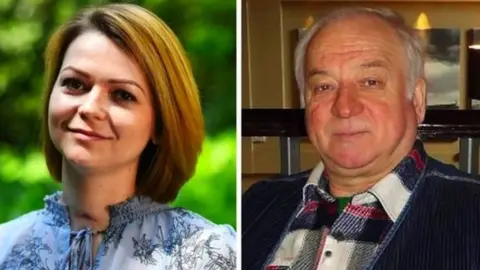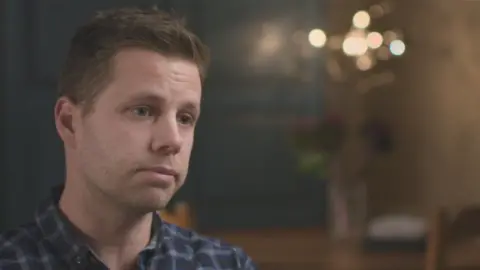Salisbury Novichok clean-up mission 'couldn't fail'
Removing Novichok from Salisbury "was a mission that couldn't fail", the Welshman in charge of decontaminating the city has said.
Former Russian spy Sergei Skripal and his daughter Yulia were targeted with Novichok in March 2018.
The Chemical, Biological, Radiological and Nuclear Task Force was led by RAF Gp Capt Jason Davies.
The officer, from Hawarden, Flintshire, said it was a "shock" to hear the deadly nerve agent was used on UK soil.
During the 10-month operation, the 48-year-old led 120 people - 60 from the RAF and 60 from the RAF Regiment, with help from the Army and police.

Gp Capt Davies, who was awarded an OBE for his role in the military response, said: "It was the shock of where it was used, my unit was designed to carry out activity of this nature, but across the globe and usually on battlefields.
"So for it to occur in downtown Salisbury, and to be told you're going on operations in a city you visited as a tourist, that was unusual."
Wiltshire Police officer Det Sgt Nick Bailey was also contaminated with the nerve agent at the Skripal's home.
The Skripals survived the attack, but Dawn Sturgess, 44, fell ill in Amesbury months after the incident and died in hospital in July 2018 after coming into contact with a perfume bottle believed to have been used in the attack on the Skripals and then discarded.
In August, it was revealed a second police officer was contaminated with Novichok during the 2018 poisonings.
The British government has blamed the attack on Russia - something the Russian authorities have denied.
 Reuters/BBC
Reuters/BBC
Gp Capt Davies, whose military career began 30 years ago at the Air Training Corps in Hawarden, said "to be in command of the taskforce in Salisbury was a challenge but a fantastic one".
"This one really hit home how important it was for the UK, it really was a mission that couldn't fail."
He said the nature of decontaminating the city made it "a very, very different challenge".
His team needed "novel techniques" to decontaminate 12 sites as places such as pubs had different surfaces and "each one has got a different property that the agent can bond with".
"So almost every single site had multiple decontamination methods put onto it," he added.
Much of the work was carried out at night and Gp Capt Davies said: "We didn't want people watching what we were doing because it just heightened the perception by the local public of danger, but also we were quite aware we were in the global media's view."
He said he still received "a pat on the back" from friends and colleagues following the incident.
"Doing our job, dawn and dusk, behind closed doors, you tend to think you're forgotten. This just adds to the fact that we weren't."
